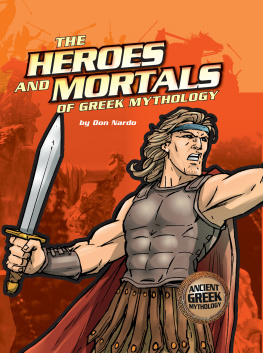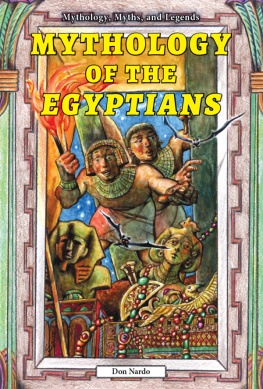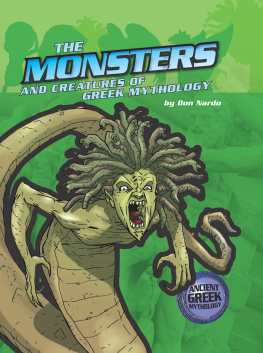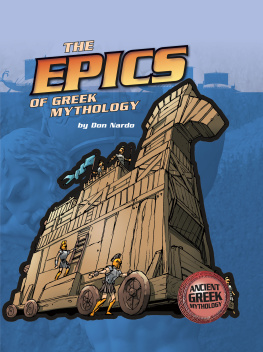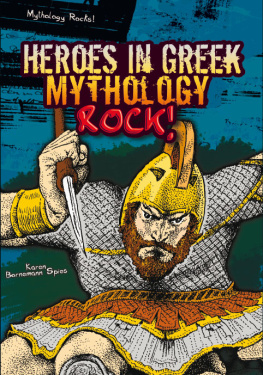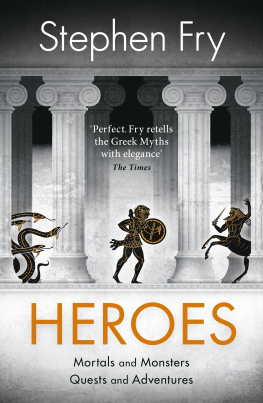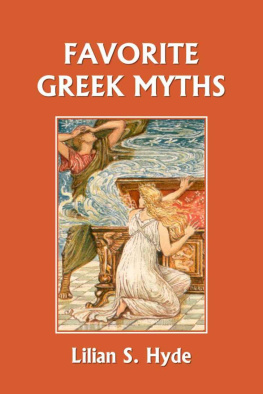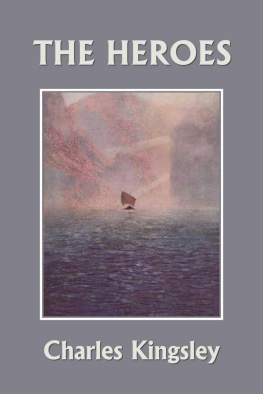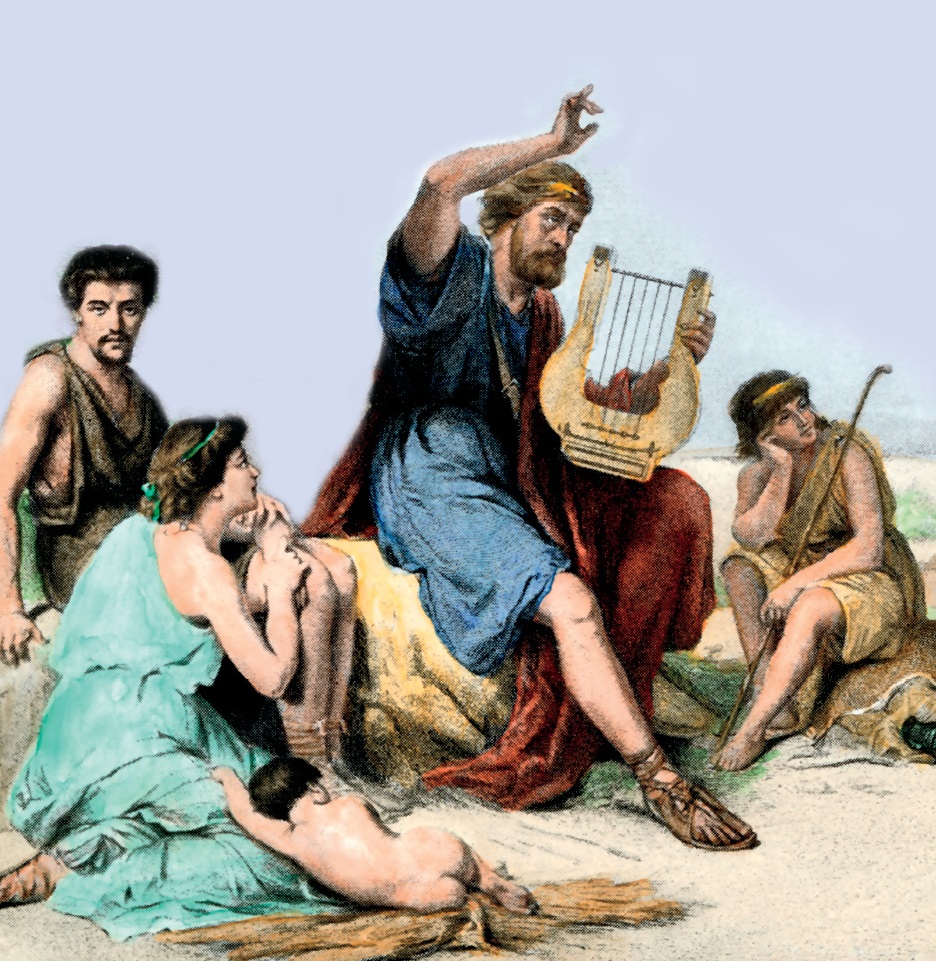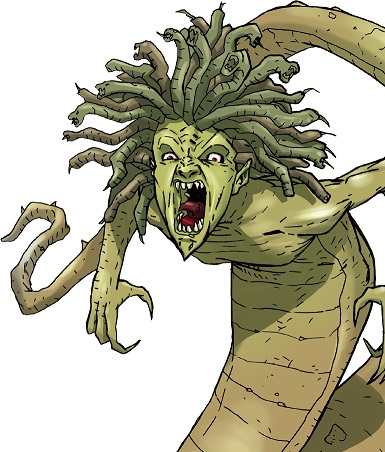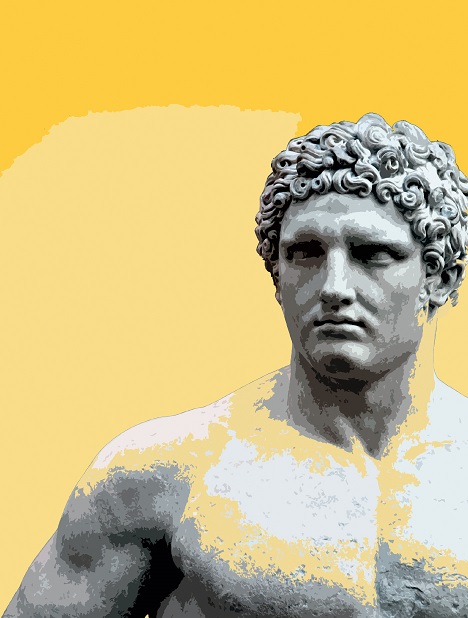Chapter 1
TRULY TIMELESS TALES
Throughout human history, each of the worlds many lands and peoples has developed its own, individual folklore or mythology. These mythologies have often differed from one another in various ways. But they have also displayed some basic similarities. For example, all have featured gods and other beings. Also typical have been stories about monsters and creatures half-human and half-animal.
Ancient Greeks, including Homer, who told the story of Troy, sang tales and poems. They often played a lyre or other musical instrument.
Still another element that all mythologies have in common is and removed them from power, bringing freedom to long-oppressed peoples.
The actual deeds achieved by such heroes vary from tale to tale and from one culture to another. Yet all of these champions share certain traits, principles, and goals. First, each possesses integrity in the highest degree. The hero would sooner die than commit dishonorable acts. The universal hero also displays uncommon courage and physical strength. In addition, he frequently performs feats that usually only the gods can accomplish. As a result, the gods take notice and often get involved in the action. Sometimes they help the hero; other times they try to keep him from accomplishing his goal.
Setting a Good Example
Just as the gods had supposedly done with the heroes and other mortals, the Greeks of classical times attempted to interact with the gods. They did this most often through the rituals of prayer and sacrifice. For them sacrifice consisted of making offerings, such as food, drink, or valuables, to the gods. So when they heard the age-old tales of humans who had attained contact with the divine, they saw those people, especially the heroes, as role models. In a way, an ancient hero set an example for ordinary people. His strength and determination often gave average individuals the courage to try to go beyond their commonplace existence and strive for something better. According to Michael Grant, an expert on ancient cultures, the Greeks
saw something splendid and superhuman about what they supposed to be their lost past. This seemed to them filled with superb figures living for renown and pursuing it with competitive vigor. [The myths about these heroes showed] that [people] can do amazing things by [their] own effort and by [their] own nature, indeed, that [they] can almost rise above [their] own nature into strengths scarcely known or understood.
Passing on the Past
Throughout the remainder of ancient times, the Greek myths featuring heroes and other mortals were retold in homes and other informal settings and taught in schools. Centuries later, Europeans adopted and repeated them as well. In this way these truly timeless tales eventually passed into the lore and literature of modern peoples, including the French, British, and Americans.
The Age of Heroes
For the Greeks who lived between about 800 BC and 300 BC, the relationship between the gods and humans was fascinating and thrilling. Most Greeks of that time were very religious. They believed that the gods they worshipped had lived among heroes and other mortals during a period of the distant past. They called it the . Today historians call it Greeces Bronze Age. They think that some of the characters of Greek mythology might have been based on real kings and other people from that age.
Monsters are common in Greek mythology. The Gorgons were dreadful creatures, and the most famous Gorgon, Medusa, was slain by the hero Perseus.
When people today read these tales, they often feel themselves drawn away into more exotic and exciting times and places. As Grant points out, readers can feel larger than life, freed from the [pressures] of present realities. Mythological characters like the mighty Heracles, greedy Midas, and wily Odysseus, carry us with them in their struggles and sufferings. Likewise when they triumph over evil and injustice, so do we.
Chapter 2
THREE FAMOUS HEROES
In works of art, Heracles is depicted with an incredibly powerful physique.
Of the many heroes populating Greek mythology, Heracles, Theseus, and Jason are perhaps the best known. Heracles (whom the Romans later called Hercules) was unarguably the most accomplished and renowned. According to legend, he was a big bear of a man. Ancient writers variously described him as having a hairy, barrellike chest, a thick beard and mustache, lots of bulging muscles, and enormous physical strength. Part of his huge stature and strength came from his unusual birthright. His mother, Alcmena, was a mortal woman. But his father was Zeus, leader of the Greek gods. And some of Heracles great physical prowess was undoubtedly inherited from his divine forebear.
Heracles was adept in the use of many weapons, but his favorite was the bow. He also enjoyed swinging a large, heavy club, which became one of his two main symbols. The other was the magnificent lion skin he often wore.
In addition to his significant physical attributes, Heracles had much strength of character. He was honest, brave, humble, and willing to admit when he was wrong. However, he did possess two character flaws that sometimes got him into trouble. First, he lacked the mental quickness of most other Greek heroes. For example, his friend, the Athenian warrior-king Theseus, was considerably brighter and cleverer. Heracles other character flaw was his nasty temper. Now and then he lapsed into fits of anger so terrible that anyone who got in his way, even a friend or loved one, was not safe.
A Superhuman Child
Heracles was born in the famous Greek city of Thebes, several miles north of Athens. The wily Zeus had earlier impersonated Alcmenas mortal husband, Amphitryon, and gotten her pregnant. Not surprisingly, when Zeus wife, the goddess Hera, heard that Alcmena bore Zeus child, she became extremely jealous. Hera ordered the goddess of childbirth, Eileithyia, to stop the babys birth. But that murderous mission failed.
Next Hera sent two monstrous snakes to kill and eat the infant Heracles. That scheme was equally unsuccessful, however. Even as a baby, he was so strong he was able to grab the serpents, one in each hand, and choke the life out of them.
Son of Zeus
Witnessing this fantastic feat, Amphitryon concluded that Heracles was no ordinary child. The man consulted a blind named Teiresias, who was known for his wisdom. Teiresias said that the baby was not Amphitryons but rather the son of the powerful god Zeus.
Feeling that he had been blessed by the gods, Amphitryon lavished attention on Heracles. The boy received an excellent education, and as he grew, experts taught him how to use weapons, including the spear, sword, and bow. They also turned him into a first-rate wrestler. He always won his matches because of his superhuman strength.

